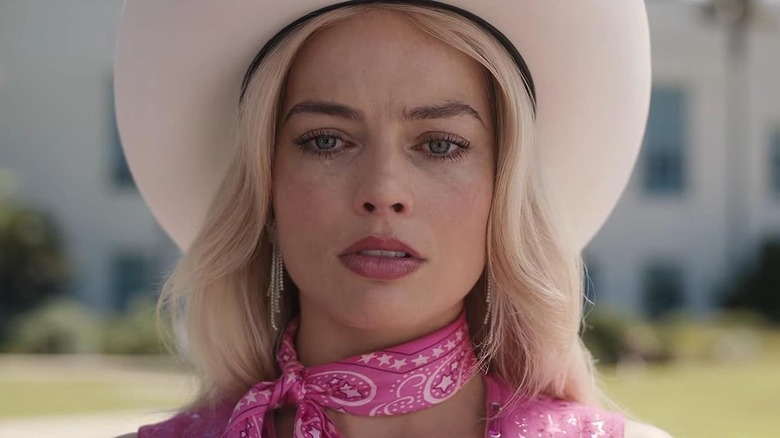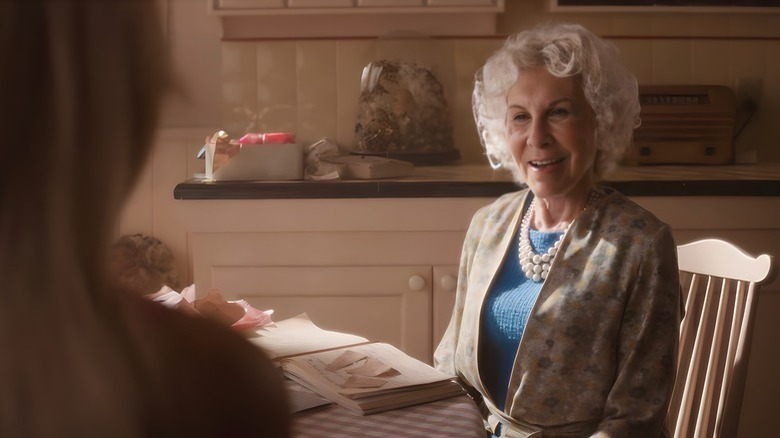One Of Barbie's Sentimental Scenes Has A Hidden Biblical Reference
This post contains spoilers for "Barbie."
There's something undeniably Biblical about the story of "Barbie." Director Greta Gerwig's smash-hit film adaptation of Mattel's uber-successful multimedia property, which she co-wrote with Noah Baumbach, begins in Barbieland, a matriarchal paradise where all the Barbies and Kens reside. While Stereotypical Barbie (Margot Robbie) isn't tempted to leave her home by a snake or serpent (neither of which has ever been a Barbie accessory at any point in the brand's history, for some odd reason), her sudden fear of mortality, flat feet, and cellulite lead her to a journey that takes her far away from her Garden of (Barbie) Eden and into the patriarchal mess that is the real world.
These religious parallels are far from a coincidence. Gerwig herself attended a Catholic high school growing up (something she touched upon in her quasi-biographical dramedy "Lady Bird") and has spoken before about the Christian affirmations and myths that informed her initial treatment for "Barbie." In a broader sense, the film brings various narratives from the Bible to mind in the way it examines the relationship between creators and their creations — a theme that rises to the surface during the scenes where the ghost of Barbie doll inventor and Mattel co-founder Ruth Handler (Rhea Perlman) appears to help Stereotypical Barbie on her search for enlightenment.
In fact, Gerwig even snuck in an explicitly Biblical reference during these moments, just to make sure nobody missed the subtext.
Ruth beget Barbie
For as many traditional Easter eggs as there are in "Barbie" (from its classic film homages to its nods to the more obscure aspects of Barbie lore), there are also some direct allusions to the film's spiritual influences. Robbie talked about this during an interview with Variety conducted prior to the actors' strike. She explained:
"There's a moment when Ruth Handler, the creator of Barbie [played by Rhea Perlman], gives Barbie a cup of tea and our hands touch like 'The Creation of Adam' by Michelangelo, imitating the moment when God gives life to the first man. Greta snuck that in there."
Ruth's final encounter with Stereotypical Barbie during the third act really drives this creator-creation motif home, culminating with the film's emotionally-charged climax (a montage of real-life home video footage from the "Barbie" cast and crew accompanied by the breathy, somber voice of Billie Eilish singing the appropriately titled "What Was I Made For?"). It's elements such as these that make "Barbie" far and away more personal for Gerwig as an artist and more than just a corporate product designed to launch the Mattel Cinematic Universe ... although it is that, too. No doubt, we can anticipate a whole lot more where that came from where it concerns the Biblical references in Gerwig's next project: a movie adaptation of the Christian parables that are C.S. Lewis' "The Chronicles of Narnia."
"Barbie" is currently playing in theaters.

